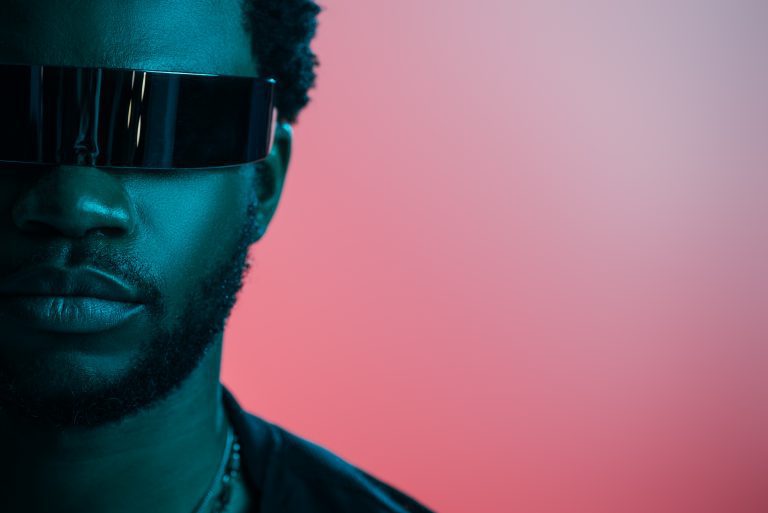How to prepare students for the Future of Work.
In a global study carried out by McKinsey & Company, 72% of deans and university leaders said they prepare their graduates for the workforce. In contrast, only 42% of employers and 44% of students thought the same (Mourshed et al. 2013). The mismatch between universities and the world of work is real and it is huge.
In a world where the pace of technological change is accelerating, trying to guess what the future trends will be seems impossible. According to a University of Oxford study, 47% of all the occupations in the US could be lost to automation in the next two decades (Frey et al. 2013). Moreover, 60% of all occupations have at least a 30% chance of being automated (Manyika et al. 2017).
With all this uncertainty, how can the education system prepare students for jobs that are not yet invented? One thing is for sure: the future of work depends on the future of learning.
What skills are needed?
A study carried out by NACE with 260 employers in the US (Gray et al. 2017) found that the most desired attributes employers value and seek in candidates are more than a strong GPA. What employers look for is a combination of soft skills that include the ability to problem-solve and work collaboratively with their peers. Technical skills come 11th in the list when ranked in order of importance. Meanwhile, another study of the future of skills (Bakhshi et al. 2017) found that complex thinking, interpersonal capabilities and everything that makes us human is what will make us employable in the future.
Soft skills are extremely relevant for success in the workplace and everyday life. People need them now and will need them in the future to manage their tasks, not only to distinguish between important and unimportant information but also to master new technologies and competencies. Instead of soft skills, we should call them power skills, because in a world of uncertainty, reskilling, upskilling and the capacity to reinvent ourselves is going to be essential.
Why is student-centred learning essential to achieve these power skills?
In student-centred learning, the learner is the primary focus. In this environment, students take responsibility for their learning and develop autonomy and independence, essential traits that enable and enhance lifelong learning. With this in mind, Tecnológico de Monterrey developed a new educational model, called Tec21 (Tecnológico de Monterrey 2017), that enables students to become independent lifelong learners. Tec21 allows them to create disciplinary competencies and power skills by solving real-world challenges. These challenges have learning modules attached for just-in-time learning related to the specific challenge while students are being assessed on the evidence of the development of competencies. In Tec21, learners can choose the study format they are more comfortable with for some specific courses, either learning in a classroom, on another campus, online, collaboratively or individually.
Challenge-based tasks can ensure the development of power skills which are impossible to develop in a classroom without facing real-life situations or problems that they may encounter in the future.
These types of modern, flexible learning environments not only encourage and demand students to collaborate with each other and practice critical thinking but also push educators to acquire new skills to meet the goals set by each student and to be more creative. Moreover, it requires teachers to become mentors, guiding students on their learning process.
20% time: self-directed learning projects
Another example of a student-centred learning tool is “20% time” which is a practice ithat derives its inspiration from Google. It allows employees to use 20% of their work time to explore projects of their choosing, as long as they align with the company. In a school environment, this means one hour a week where students can explore different topics of their interest.
By giving the students the opportunity to develop self-directed learning projects, they have the opportunity to work in depth on subjects that may not be in the curriculum but which can help them discover their passion while also developing curiosity, exploration and research skills.
Conclusion
By implementing a student-centred learning environment instead of teacher-directed instruction, we can promote and develop an emphasis on Life Long Learning and reinvention which is vital in tomorrow’s workplace.
Power skills such as critical thinking, teamwork and the ability to learn how to learn will be critical for future generations, not only to fuel the workforce in the face of technological changes but also to achieve fulfilling and rewarding careers in whatever new jobs are created in the future.
References
- Bakhshi, H., Downing, J. M., Osborne, M. A., & Schneider, P. (2017). THE FUTURE OF SKILLS EMPLOYMENT IN 2030(Rep. No. 978-0-992-42595-1). Retrieved https://media.nesta.org.uk/documents/the_future_of_skills_employment_in_2030_0.pdf
- Barton, D., Farrell, D., & Mourshed, M. (2013, January). Education to employment: Designing a system that works. Retrieved from https://www.mckinsey.com/industries/social-sector/our-insights/education-to-employment-designing-a-system-that-works
- Connell, G. L., Donovan, D. A., & Chambers, T. G. (2016). Increasing the Use of Student-Centered Pedagogies from Moderate to High Improves Student Learning and Attitudes about Biology. CBE—Life Sciences Education,15(1). doi:10.1187/cbe.15-03-0062
- Deegan, J., & Martin, N. (n.d.). Merging work & learning to develop the human skills that matter. Retrieved from https://www.pearson.com/content/dam/one-dot-com/one-dot-com/global/Files/about-pearson/innovation/open-ideas/DDE_Pearson_Report_3.pdf
- Frey, C. B., & Osborne, M. A. (2017). The future of employment: How susceptible are jobs to computerisation? Technological Forecasting and Social Change,114, 254-280. doi:10.1016/j.techfore.2016.08.019
- Manyika, J., Chui, M., Miremadi, M., Bughin, J., George, K., Willmott, P., & Dewhurst, M. (2017, January). Harnessing automation for a future that works. Retrieved from https://www.mckinsey.com/featured-insights/digital-disruption/harnessing-automation-for-a-future-that-works
- McCarthy, J. (2015, September 9). Student-Centered Learning: It Starts With the Teacher. Retrieved from https://www.edutopia.org/blog/student-centered-learning-starts-with-teacher-john-mccarthy
- Tecnológico de Monterrey, Modelo educativo TEC21. (2018, July). Retrieved August 28, 2018, from http://modelotec21.itesm.mx/
- The Key Attributes Employers Seek on Students’ Resumes. (n.d.). Retrieved from https://www.naceweb.org/about-us/press/2017/the-key-attributes-employers-seek-on-students-resumes/.
José Escamilla is the Director of TecLabs – Learning Reimagined, Tecnologico de Monterrey disruptive innovation unit, whose objective is finding out how higher education will be in 2030. He was the Dean of the Graduate School of Education, has worked in the use of technologies in educational, artificial intelligence in education and other educational innovation projects. He holds a Computer Science Engineering Degree from Tecnologico de Monterrey, and a Ph.D in Artificial Intelligence from Institut Polytechnique de Grenoble. This article has been used with permission and was originally published on the WISE website




















